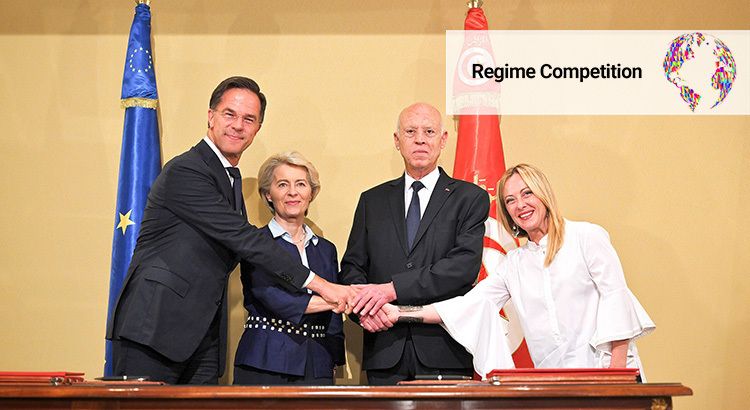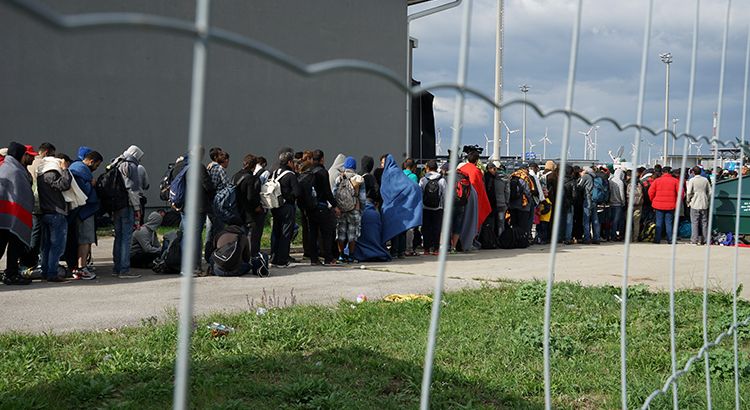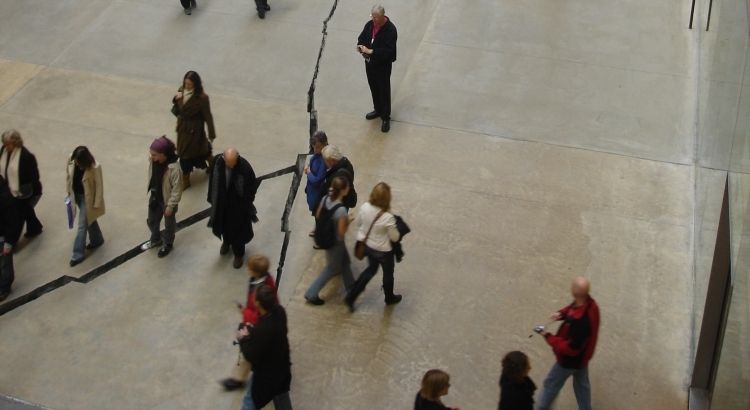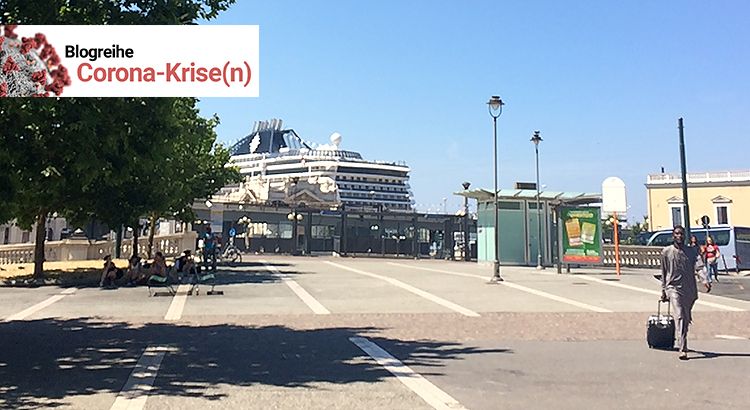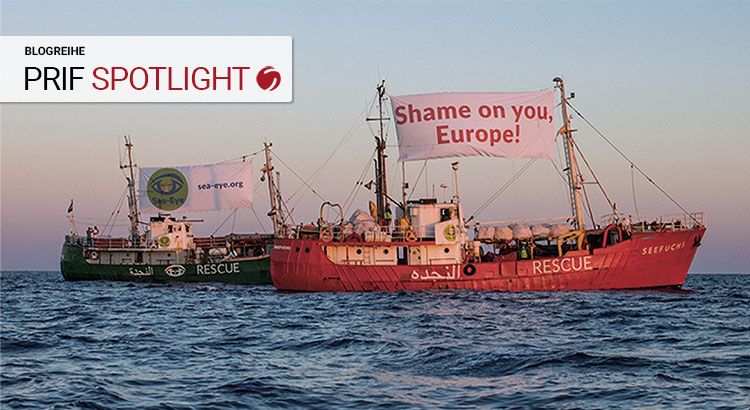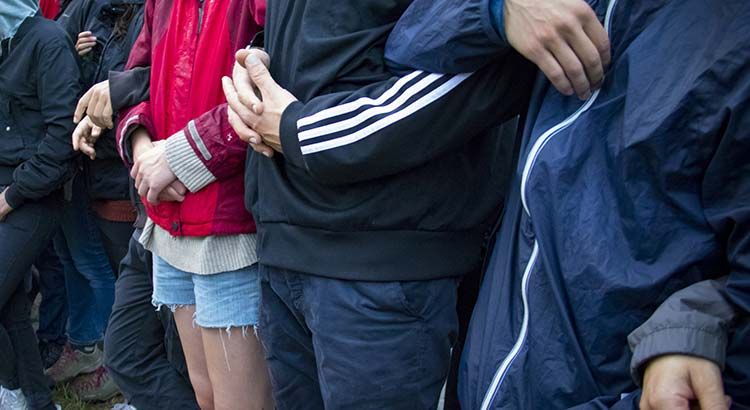Schlagwort: Migration
It has been about three months since the catastrophic wildfires broke out on January 7, 2025, devastating the US city of Los Angeles. The fires destroyed thousands of homes and displaced their residents. These wildfires also highlighted the many facets of climate migration: the urgency of the climate crisis, manifold reasons why people move, and the crucial role of cities, not just as sites of climate impacts but also as actors in addressing climate migration. Amid a rather abstract discussion about climate migrants, cities offer the chance to address the needs of people on the move because of the climate crisis more substantially and practically.
EU Democracy Support in the Southern Neighborhood: How the EU Contradicts its own Practices
For decades, the EU has declared that it aims to support democratization in its southern neighborhood. Yet, the EU’s cooperation with repressive rulers in other policy fields, such as energy, migration, security, and trade, contradicts the EU’s own democracy support objectives. European policymakers have apparently not learnt from the pre-2011 period. As we argue in our project SHAPEDEM-EU, the EU must embark on a journey of un-, de- and re-learning, and it must avoid contradicting practices in different policy fields. This can be done by introducing a democracy learning loop.
Harmonisierung um jeden Preis
Am heutigen Internationalen Flüchtlingstag ist die Situation für Geflüchtete so düster wie wohl seit Einführung des Gedenktages im Jahr 2001 noch nie. Während 2022 mehr als 100 Millionen Menschen auf der Flucht waren, lassen sich weltweit, insbesondere im Globalen Norden, Bestrebungen zur Aushöhlung des Flüchtlingsrechts beobachten. Die EU plant eine umfassende Reform des europäischen Asylrechts, doch auch dieser wird keine Harmonisierung gelingen, da Kernprobleme des bisherigen Systems nicht angegangen werden. Menschenrechtliche und rechtsstaatliche Grundsätze werden zum Bauernopfer.
The Externalization of EU Borders: The Case of Agadez
While the externalization of border enforcement to African states may have contributed to a decline in arrivals to Europe via the Mediterranean Sea, Nigerien and European Union (EU) authorities have neglected the immense negative impacts of these migration policies on local communities, refugees, and migrants. This spotlight provides an overview of the local implications of the EU’s strategy of externalizing its borders towards transit states in Africa. It focuses on the case of Agadez in Niger, which has been the primary transit city within the Sahel region for migrants and refugees in transit to Europe.
Flüchtlingsschutz muss Grenzschutz weichen: Zum Vorschlag der EU-Kommission zur Reform des Schengen-Systems
Im Dezember legte die EU-Kommission einen Gesetzentwurf zur Reform des Schengen-Systems vor. Was auf den ersten Blick die Grenzkontrollen im Rahmen des Schengener Grenzkodexes harmonisieren soll, könnte zur weiteren Erosion der Menschenrechte an den EU-Außengrenzen beitragen. Die Mitgliedstaaten werden primär mit Maßnahmen ausgestattet, die auf Abschreckung und Verhinderung von Asylverfahren ausgerichtet sind. Dies untergräbt letztlich das normative Fundament der Union.
Eine Frage der Reichweite – zum Stellenwert von Migration und Mobilität in der Corona-Krise
In Zeiten von COVID-19 wird noch deutlicher, was sonst auch gilt: Migration ist unmittelbarer Teil räumlicher Definitionsmacht – für das Individuum und für staatliches Handeln. Immer deutlicher präsentieren sich deshalb auch die Auswirkungen der COVID-19-Pandemie als Seismograph bereits vorhandener sozialräumlicher Ungleichheiten auf verschiedenen Maßstabsebenen (lokal, regional, national sowie trans- und subnational). Sichtbar werden diese Ungleichheiten zurzeit vor allem in den Städten, die in den letzten Jahren Treiber und zugleich Schauplatz veränderter Migrationsmuster und Mobilitäten waren. Dort manifestieren sich die in Migrationsprozesse eingeschriebenen gesellschaftlichen Hierarchisierungen zwischen denen, die sich bewegen dürfen und können und denen, die sich bewegen müssen, am stärksten.
Turning a blind eye? The rescue of migrants in the Mediterranean
In recent years, the waters of the Mediterranean have become an unmarked grave for a myriad of migrants who drowned during their desperate attempt to reach Europe by boat. Urgent steps are needed to stop this humanitarian crisis. Addressing the root causes, including poverty and civil war, which force or prompt people to attempt the dangerous journey is crucial but time-intensive. In the short term, European governments need to reverse their current policies and either substantially increase their own Search and Rescue (SAR) efforts or facilitate the operations of NGOs engaged in saving people at sea.
Protesting Deportations: On the Importance of Civil Disobedience
Deportations have always been a contested practice. Conservative and right-wing actors have insisted that carrying out deportations is essential for state sovereignty and application of authority. Simultaneously, by taking to the streets civil society, citizens and asylum seekers alike have practiced resistance against deportations in the form of demonstrations, petitions, blockages or hunger strikes. Their anti-deportation protests either claim the right to stay in general or focus exclusively on an acquainted person – like a neighbor or school mate – who is about to be deported. Protests against deportations are sometimes successful by stopping specific deportations; overall, they are also shaping the discourse.

